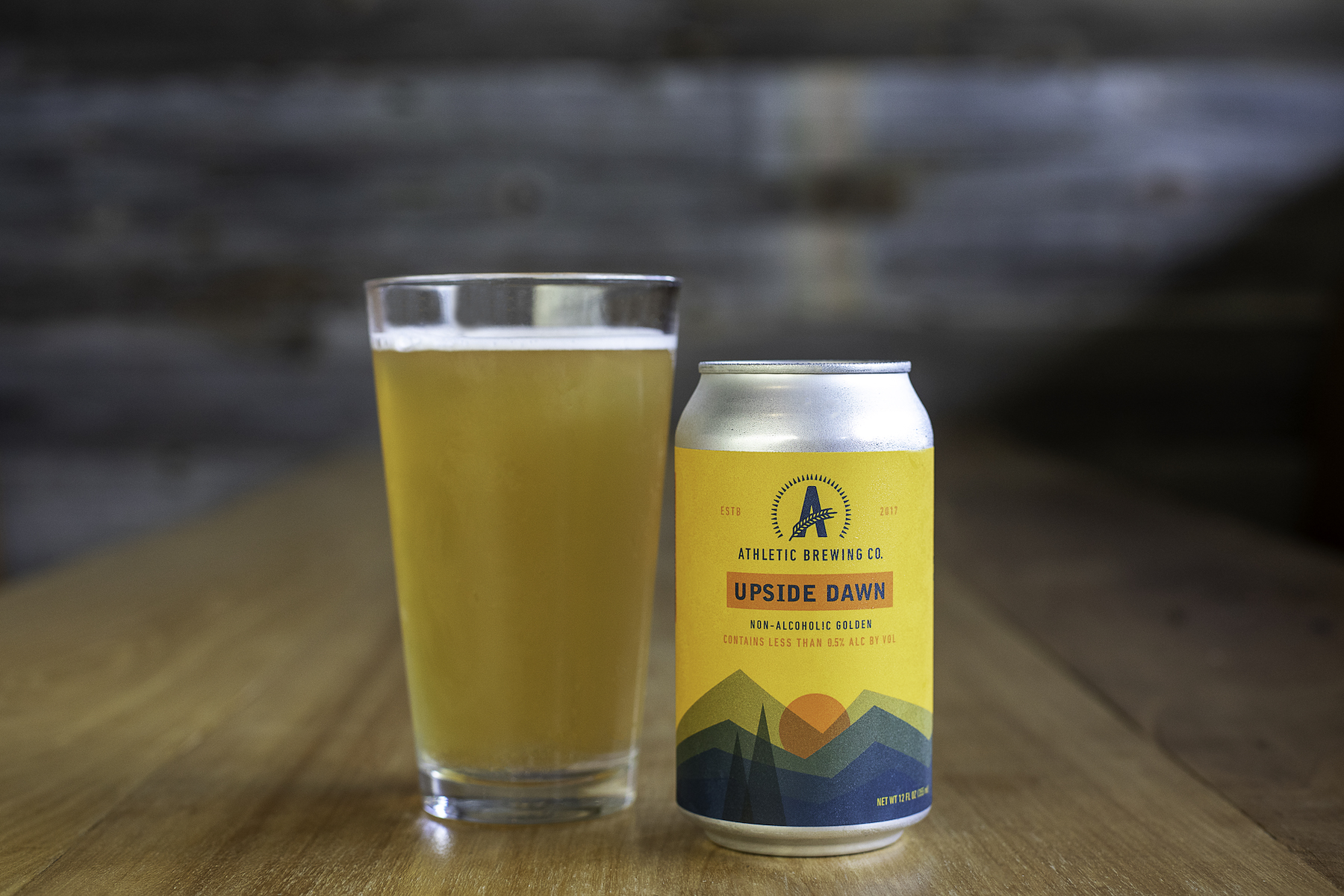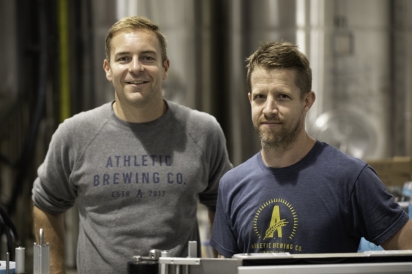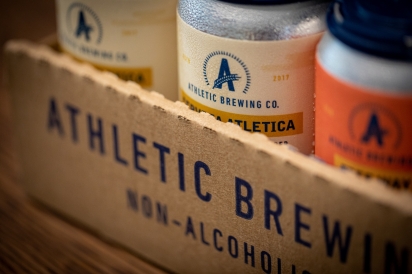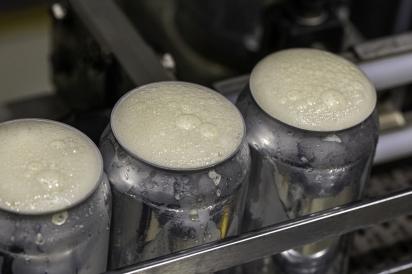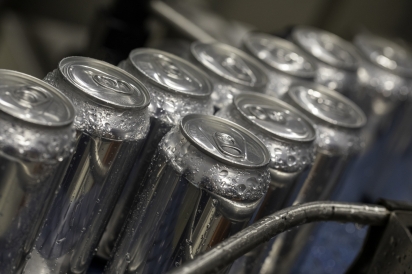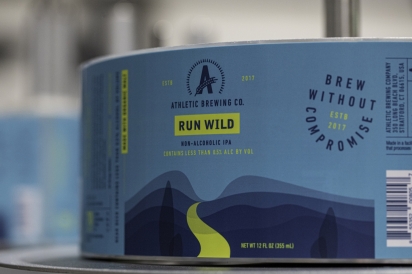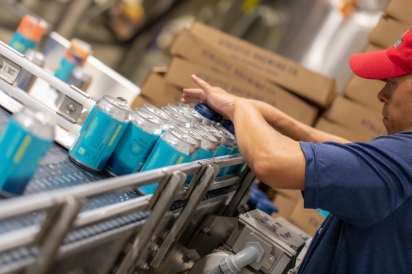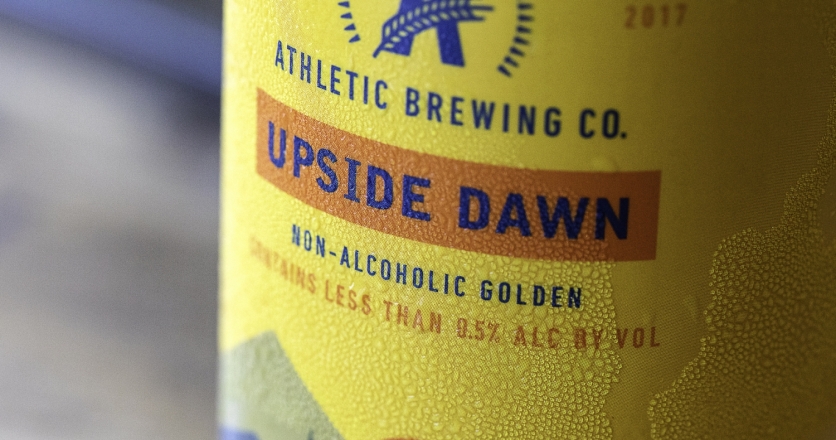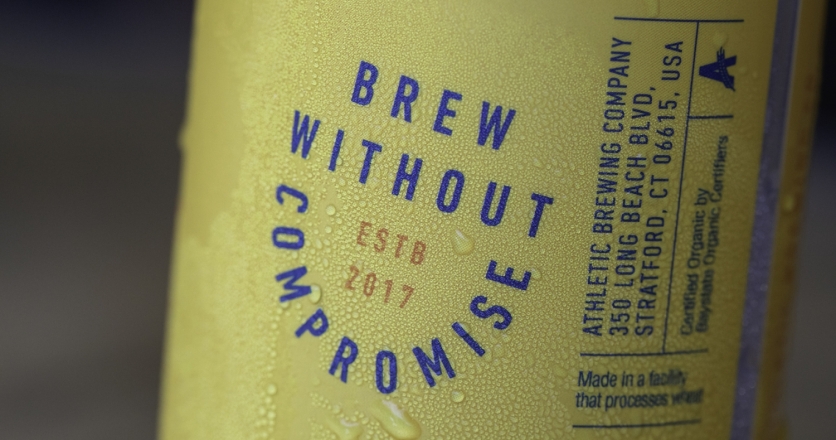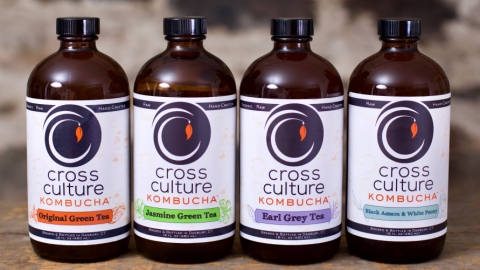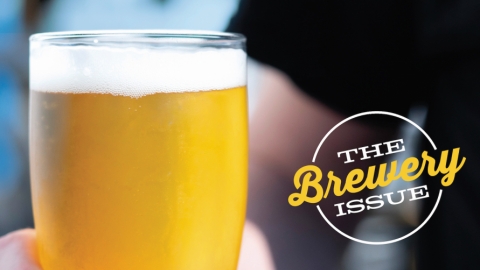Athletic Brewing Company
Bill Shufelt had a really good thing going. His job at a top hedge fund firm had provided a stable 12 years of employment and a host of accomplishments since graduating from Middlebury College. But he found himself increasingly pondering his future and wondering if there was something more fulfilling to set his sights on. Turns out his search for something more became a quest for something less.
Reflecting on his career, family, and personal interests, which included several athletic pursuits, he decided to pull back on his alcohol consumption as a way to increase his fitness level. After 30 alcohol-free days, he felt demonstrably better both physically and mentally, so he cut alcohol completely from his diet and has been sober by choice for six years.
Choosing a non-alcohol lifestyle, however, did not mean Shufelt stopped spending time with friends at local restaurants and bars. “One of the biggest pain points for me was going out and not having a decent, enjoyable beverage to sip,” says Shufelt. “My options included mostly sugary drinks with artificial ingredients or something bland and uninteresting.” The more he ventured out with friends, the more curious he became about why no one was producing decent non-alcoholic beer. He spent nearly two years researching this anomaly and soon realized just how big an opportunity he was looking at. “There hasn’t been a new non-alcoholic beer entry in the U.S. market in almost 25 years,” explains Shufelt. “Meanwhile, the characteristics of a good non-alcoholic beer totally align with today’s evolving food and lifestyle preferences.”
Shufelt then thought about the social impact a great-tasting non-alcoholic beer could have. “I realized tens of thousands of lives, if not more, could be positively impacted, if we figured out how to make non-alcoholic beer enjoyable and trendy,” says Shufelt. “When I visualized that outcome, I quit my job two days later and set out to find a head brewer to partner with.”
The search for a partner became an arduous undertaking. Recruiting a head brewer without a finalized plan, financing, or an actual solution to the envisioned brew led to 200 potential partners rejecting Shufelt’s advances. He did not give up.
John Walker was the first person Shufelt spoke to who was receptive to the concept. At the time, Walker was the award-winning head brewer at Second Street Brewery in Santa Fe, New Mexico. With a wife and young kids, Walker was also evaluating his longer-term plans and open to relocating back to the east coast; he is a Connecticut native. “Bill came out to New Mexico to share his vision and meet me and my family,” recalls Walker. “It meant a lot that he was willing to do that, and we quickly connected on the non-alcoholic beer challenge. It stimulated my intellectual curiosity, and I shared his passion about the social impact we could create.”
So, Walker packed up and moved his family back to Connecticut to help Shufelt figure it all out. The pair, who barely knew each other, suddenly found themselves working side by side in a Stratford warehouse experimenting with various formulations and fermentation techniques that could crack the code. Their first brewing system was a thoughtfully constructed system made out of 5-gallon Gatorade coolers and other small-scale home-brewing equipment.
Over the past 30 years, industrial beer companies generally relied upon two methods to create non-alcoholic beer: vacuum distillation and reverse osmosis. Vacuum distillation takes a traditionally fermented beer and uses heat to burn off the alcohol, exploiting the lower boiling point of alcohol versus water. Reverse osmosis utilizes high pressure to push fermented beer through a special filter that is designed such that only alcohol and certain compounds can fit through. While both methods effectively reduce alcohol content, the results often yield a less-flavorful brew.
Shufelt and Walker decided to forgo traditional practices and go back to the drawing board. They experimented for nine months before they felt they nailed a method and a recipe that would satisfy the beer market. “About two months into our product development, the beer started to taste good,” says Shufelt. “That’s when we ordered the production equipment, and I started to seek financing.” The journey to secure capital again proved challenging and was made more difficult by the fact that they didn’t have a finished product to sample during their pitches. However, the team’s hard work to create a new production method yielded a proprietary and patent-pending manufacturing process. This, along with the credibility of the two founders, played a big role in inking the deal to capitalize the venture.
Athletic Brewing Company offers several award-winning non-alcoholic beers that deliver truly authentic craft-beer flavors and aromas. Their flagship beer lineup is certified organic, and the company is committed to using local ingredients as much as possible. As part of the company’s mission to make an overall positive impact, 2% of sales is donated to trail and park cleanup initiatives.
Since opening their doors in May 2018, the company’s brews can be found throughout Connecticut, as well as MA, NY, NH, and PA. “We’ve recently expanded our footprint in Stratford to handle online sales,” says Shufelt. “We offer free shipping on orders of two six-packs or more, and e-commerce is a rapidly growing part of our business.”
Athletic Brewing is currently the only non-alcoholic taproom in the United States. Shufelt says they are welcoming guests with increasing geographic diversity. “We recently hung a map of the United States in the taproom, so customers visiting from other states can place a pin to memorialize how far they traveled to check us out.”
Shufelt’s original hypotheses seem to be playing out. Athletic Brewing Company is nicely positioned as a lifestyle brand and attracts not only everyday beer consumers, but also elite athletes who want to engage and support the company. Many have become official brand ambassadors and help spread the word about how switching to Athletic Brewing’s beers has been beneficial to their training regimen. Most importantly, people love how the beer tastes and are coming back for more.
Fate would have it that Shufelt and Walker found each other when they did. Both were searching for something bigger to accomplish in their careers. Both took a leap of faith when leaving their jobs to solve a problem in a way that had not been done before. Ironically, their pursuit of “something more” manifested itself as a hunt for a solution to create a beer with less alcohol. As word of Athletic Brewing Company’s great-tasting and sessionable beers continues to spread, it is clear the company will be a living example of the old adage that, sometimes, less is more.
> Athletic Brewing Company: 350 Long Beach Blvd., Stratford; 203-273-0422


